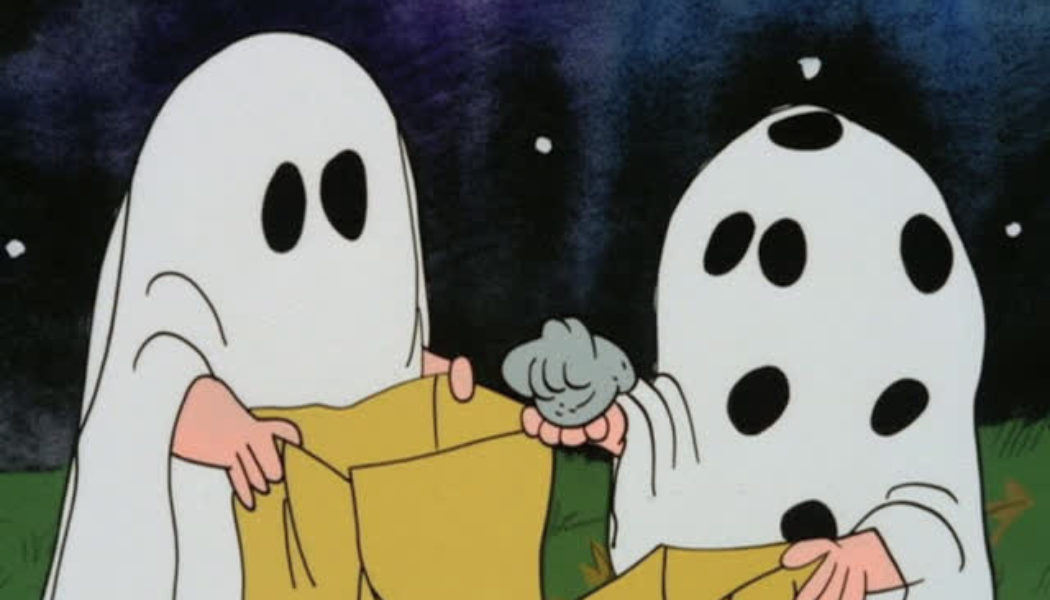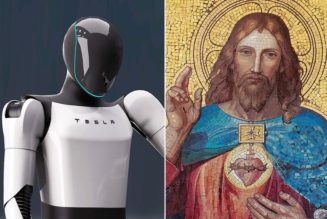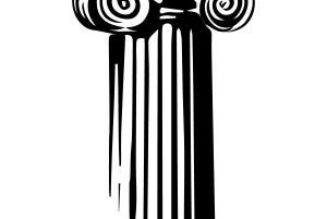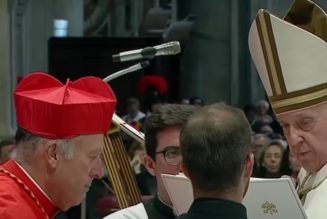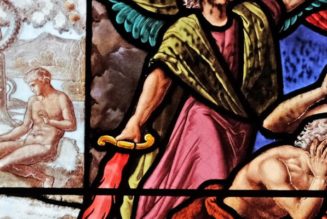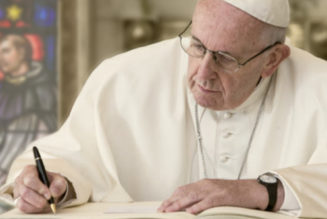Happy Friday friends,
I don’t know how your week has been, but in my house, our daughter has become so fixated with a picture book called “Brown Bear, Brown Bear, What Do You See?” that I have begun reciting a nonsense litany of animals under my breath like some kind of monastic prayer.
I don’t really understand children’s mental development, but it is beyond me how teaching her about brown bears and yellow ducks – alongside purple cats and blue horses – will help her to understand the world.
It seems like a recipe for giving her an expectation of surrealism in the world. Come to that, maybe it’s not such a bad teaching tool after all.
Anyway.
It has been another big week in the news, and we’ve got a lot to get through. But before we do, just a reminder that you really should sign up for Starting 7, Luke Coppen’s daily morning news roundup.
Quite apart from bringing you the daily Vatican bulletin on appointments, resignations, and papal audiences, and the must-read stories from around the Catholic world, from all outlets, Luke also includes a daily shot of analysis on a story you may have missed, or not even had the chance to notice yet.
This is, and I am not exaggerating, the one thing I must read every morning, and we are giving it away free to our subscribers. That’s it. No catch. No extra charge. Just something great you can have, five days a week, as a thank you for being a part of The Pillar and the work we are trying to do.
Here’s how you sign up for it. It takes like two clicks, maybe three.
The News
Ecumenical Patriarch Bartholomew I of Constantinople is the spiritual head of Eastern Orthodox Christianity. He is, as world religious leaders go, kind of a big deal.
Orthodox Church relations are a big part of the puzzle of the Ukraine war. It was Bartholomew’s 2019 decision to recognize the independent Orthodox Church of Ukraine, which is separate from the Ukrainian Orthodox Church of the Moscow Patriarchate, that led to the Kirill breaking communion with Constantinople, opening a rift in the global Orthodox Communion.
This is an important interview. And you can read it right here.
—
The recently appointed apostolic administrator of an Indian Syro-Malabar archdiocese is facing what can only be described as open rebellion from his priests.
The priests are demanding, inter alia, that they be allowed to continue to consecrate the Eucharist versus populum, instead of ad orientem as their bishop, the Syro-Malabar Church’s synod, and the Vatican are insisting. The previous administrator of the archdiocese was forced by the Vatican to resign in July because he continued to dispense the priests from the ad orientem requirement.
The Syro-Malabar Church is the second-largest Eastern Catholic Church, and what is going on in India matters a lot. It’s not immediately clear to me what options the archbishop or even the Vatican have to bring the local clergy in line, short of putting an entire archeparchy of half a million Catholics under an interdict.
—
An independent commission investigating child abuse in institutions in England and Wales has recommended that Parliament pass mandatory reporting legislation with no exceptions for the seal of confession.
This isn’t the first time that a report like this has recommended legislating to compel priests to violate the seal of confession, despite there being no evidence, anywhere, ever, of the sacramental seal contributing to the abuse of minors.
—
It’s not every day that Republicans for Choice and Democrats for Life work together to oppose a ballot initiative.
But that’s exactly what’s happening in California. The No on Proposition 1 campaign has attracted support from diverse groups, all objecting to a ballot measure that would enshrine abortion until the moment of birth in California’s constitution, and fund abortion with taxpayer dollars.
—
Next, don’t miss our investigative deep dive into the plan to merge the Diocese of Steubenville, Ohio, back into the Diocese of Columbus.
The priests say that their diocese isn’t nonviable — on the contrary, they point out Steubenville has significantly more priests per capita and a higher Mass attendance rate than any other diocese in Ohio, including the one they are set to be merged into. The Diocese of Steubenville, the priests said, is ripe for evangelization not closure:
“This is mission territory that cries out for the spreading of the Catholic Faith. In one sense, we as missionary disciples of Christ could be in no better place!” the clerics argued.
The merger plan was announced to the priests by Steubenville’s Bishop Jeff Monforton last week, who consulted the other bishops of the state and the Vatican, but not with his own clergy, as he confirmed to us this week.
We spoke to Monforton about his clergy’s objections, and about several financial issues we’ve uncovered his diocese — the bishop applied for a $50,000 grant for a capital campaign feasibility study in October last year, weeks after the Ohio bishops privately voted in favor of merging the diocese out of existence — a vote which eliminated the need to reopen the cathedral which has been closed since 2014.
That’s only one of several “fiscal anomalies” in the Steubenville diocese.
We also broke the news that Bishop Montforton faces an investigation under the norms of Vos estis lux mundi following complaints to the Holy See that he failed to properly address at least one instance of clerical sexual misconduct.
There’s a lot going on in Steubenville. Read our whole investigative report here.
💡
Crisis of confidence
On Wednesday, the Catholic University of America published the results of an extensive survey of American priests and bishops. The results laid bare a collapse in trust of the bishops by their own clergy.
The report paints a bleak picture, with priests describing their bishops using some very unflattering terms — “imperious,” “above the law,” and “chameleons” were some of the more biting ones used. Diocesan priests said they, in turn, are seen as “expendable,” and as “liabilities” by their bishops who would “throw them under the bus” at the first sign of a problem.
The causes for much of this are obvious: there remains in the Church one law for priests and another for bishops in handling all kinds of misconduct allegations. When clergy report that bishops consider themselves “above the law,” they are not factually wrong: bishops are actually above the norms and policies that they apply to their priests.
You can read all about the survey and results here.
Bishop Andrew Cozzens of Crookston, who has had the difficult task of rebuilding trust after the scandals of his predecessor, told us that the results were an “examination of conscience” for him and for the bishops.
“Sincere listening and intentional conversations will be needed by us all as we seek the unity the Lord wants for his family and that we need for the work of evangelization,” Cozzens said. “That must be the way forward. Maybe this is what synodality is really about?”
—
I wonder, for example, if the irony will strike the bishops that they are being asked to discuss and vote on a proposal to extinguish the Diocese of Steubenville, when the priests of that diocese have not been consulted about the issue.
While U.S. priests have a low level of confidence in their own individual bishops, that’s nothing compared to the lack of faith they have in the bishops as a group. That is potentially an even bigger problem. Past a certain point – and I would say that 24% confidence is past that point – this begins to look like a systemic crisis of confidence in the hierarchy of the Church.
That being said, I do think the report is going to cause a lot of distress among U.S. bishops like Cozzens, who will feel personally each of the criticisms in the survey, even when the shoe might not fit very well.
I also suspect that other bishops, particularly when it comes to “throwing clergy under the bus” and treating them as expendable liabilities, probably won’t think this song is about them.
I will be interested to see if any of the ten candidates for the conference presidency talk about how the bishops should relate to their closest collaborators — their own priests — next month.
You can read my whole analysis here.
Very bad ideas
One year on from the birth of our daughter, I am still getting used to the idea that I am a parent.
Before she arrived, there was a whole swath of news stories and political fights that I was grateful to simply check out of because, not having kids, I simply didn’t have to care, and the issues were so angry and vitriolic and subject to all kinds of distortion that, frankly, I didn’t want to get involved.
Increasingly, I find these things hard to ignore, however.
It sends a shiver down my spine when, for example, state politicians propose legislation to allow Child Protective Services to prosecute parents who won’t raise their children as a different sex to the one they are born.
I can think of no policy more dystopian, more redolent of Huxley’s Brave New World, more calculated to make me question my sanity, and that of everyone in our public life. The move to wield the power of the state coercively against the family, to separate children from their parents in service to a political worldview, should be a five-alarm fire for any rational person.
So imagine my exasperation, if you can, when I read those on the opposite end of the ideological spectrum arguing, essentially, for the same thing — that the state should, for example, prosecute parents and remove their children from their care if they take them to so-called “drag queen story hours.”
Has everyone gone completely mad?
Let me be clear, my familiarity with drag shows extends only to several viewings of the 1996 film “The Birdcage.” And while I like the film a lot, I cannot for myself see the idea of arranging drag performances for kids as anything other than grotesque. But my primary concern is for my own child. And limiting the circumstances in which social services can kick down my door is of rather more concern to me, and I cannot fathom why anyone wouldn’t feel the same way.
There is a clear trend in our politics, both on the left and the so-called “New Right” to fetishize the acquisition and use of maximal power by the state, and it terrifies me.
It bespeaks a certain political immaturity. Anyone who has worked in politics at a reasonably senior level for longer than a few election cycles understands that, sooner or later, you end up in opposition and your wildest excesses in office become the floor of acceptable action for your political opponents. So a failure to check your will to power means, inevitably, fashioning a rod for your own back — or your children’s.
But this same trend also points to a certain kind of cultural-political nihilism.
Our national political discourse has devolved to the point where people are seriously arguing that instead of successive administrations passing and repealing tax laws, or industry regulations, they should trade off turns kidnapping their political opponents’ children.
Have these people lost their bloody minds?
If all this makes me question my sanity, it positively makes my blood boil when I see people soliciting buy-in for this madness under the cloak of Catholic values.
I have no real bone to pick in the fringe-but-fashionable discussion around “integralism” per se. When I read interviews like this one with Professor Thomas Pink, I confess I find little, if anything, to disagree with.
But what gets my goat is when people decide that some selective quoting of Leo XIII or Augustine is all you need to turn a discussion about an ideal ordering of society into a case for someone else’s political movement.
Let’s just be 100% clear about this: the United States is a pluralistic democracy, arguably one in the latter stages of decline. But there is no route or path to turning it into a Serene Catholic Republic or integralist Imperium of the Americas, or any other revanchist cosplay fantasy.
Catholics can and must be salt, light, and leaven in our politics and society, but there is no parallel reality in which we go from where we are to a recognizably “integral” relationship between the American state and the Church.
So when, for example, Catholic talking heads talk about “needing to get comfortable” with using state power to reward virtue and punish iniquity, what they mean is getting comfortable with someone else using state power to reward and punish according to their own lights which, they hope, they can influence to a degree.
Strangely, these same talking heads usually end up backing a MAGAist vision and second Trump term. And if that happens to bring with it a fetishistic zeal for the death penalty, racially charged policies towards immigrants and asylum seekers, and maybe a little light insurrection every now and then? Well, omelets and eggs, I guess.
Call me crazy, but this is not how you advance the great mission of the Church to make disciples of all nations. You do not evangelize through coercive government policy, you do it by announcing the reality of the death and resurrection of Jesus Christ to every person you meet.
Paying for Peanuts
Mrs. Condon is very angry. And I cannot blame her. When we were first married, the Charlie Brown holiday specials were an important window for her into my own childhood, and American culture.
We both love “A Charlie Brown Christmas,” and while I adore “It’s the Great Pumpkin, Charlie Brown,” virtually everything my wife has come to know and love about Thanksgiving she learned from the Charlie Brown holiday special.
Both of us considered it a very good thing that these specials existed and were broadcast, free to air on network television, every year, and had been for decades unbroken.
In a culture where “family friendly” entertainment usually means a deep undercurrent of snark and innuendo beneath a superficial children’s plot, the universal appeal of, for example, Charlie inexplicably receiving only rocks while trick-or-treating stands out.

But it seems that Apple now owns the holiday specials, or the rights to air them anyway. For certain 2-3 day windows around the holidays, Apple won’t charge you to watch the Charlie Brown specials — at least, you won’t be charged actual money. You do need an iTunes account (and internet access, of course) so you have to give them your name, address, email address, and payment details if you want to watch them.
This, by the way, would seem to lock out a quarter of rural households, some 14.5 million people who, according to the FCC, don’t have access to the internet at threshold speeds.
How is this possible? I’m serious. Have we really no mechanism for declaring a legitimate public interest in what little common cultural heritage we all share? I’m no fan of maximalist government, as earlier sections of this newsletter hopefully made clear, but in the U.K. there is a protected list of national events which must be broadcast on free-to-air television, so that cultural “crown jewels” like the Wimbledon tennis championships can be enjoyed by all.
Mercifully, we bought the DVDs of all the Charlie Brown specials years ago. But, honestly, is there anything more reflexively wrong than handing over Charlie Brown, with all the cultural simplicity and honesty that it embodies, to Apple, which has all the values of a predatory vampire squid?
Good grief.
See you next week,
Ed. Condon
Editor
The Pillar

💡
Join Our Telegram Group : Salvation & Prosperity
